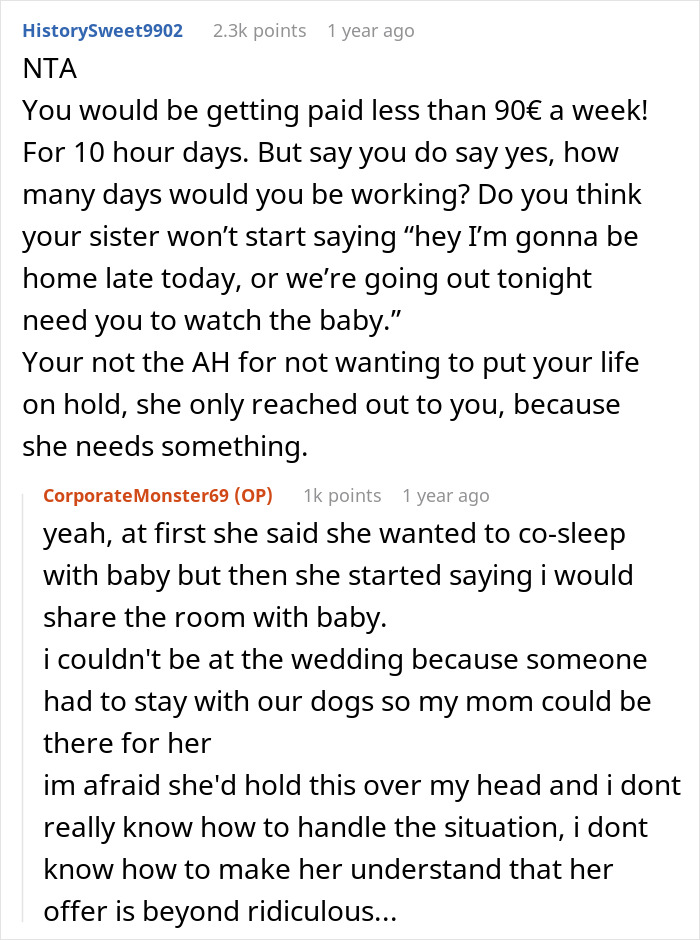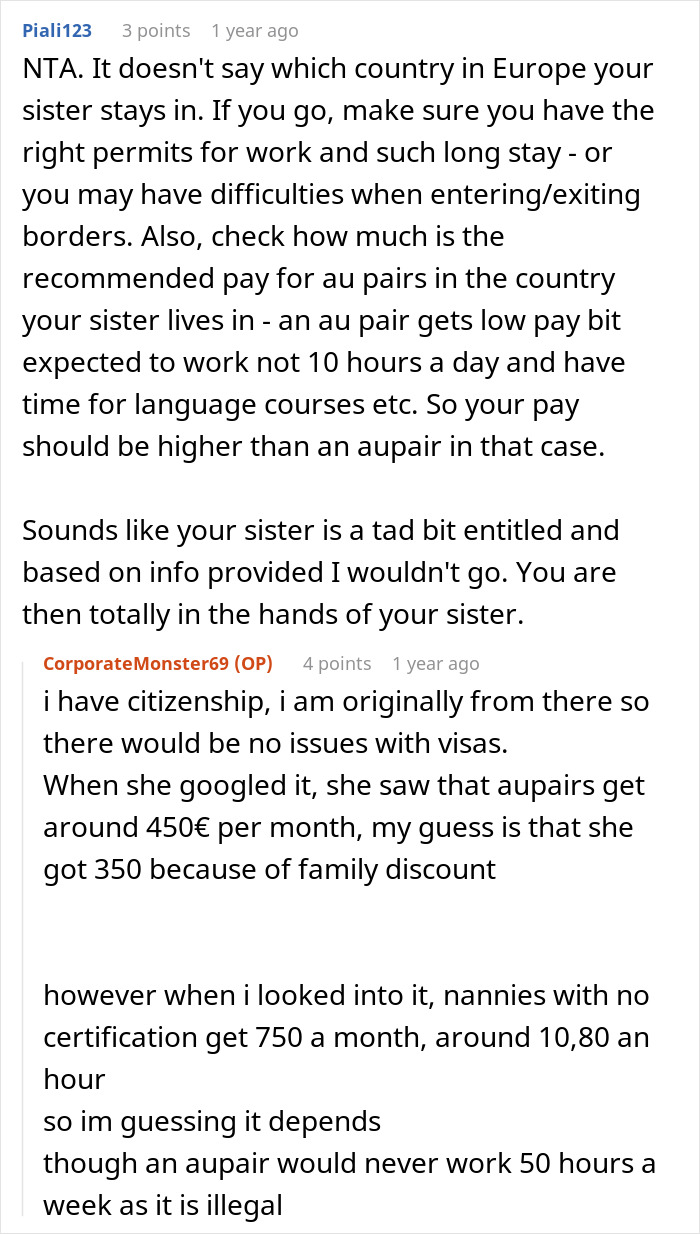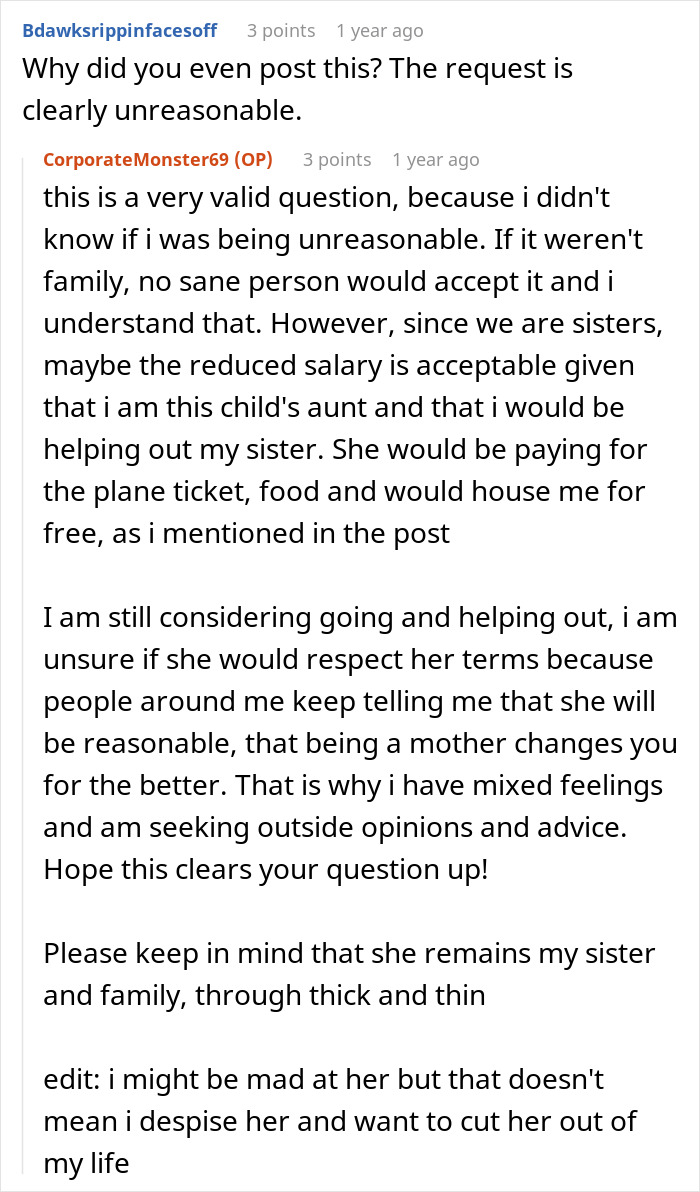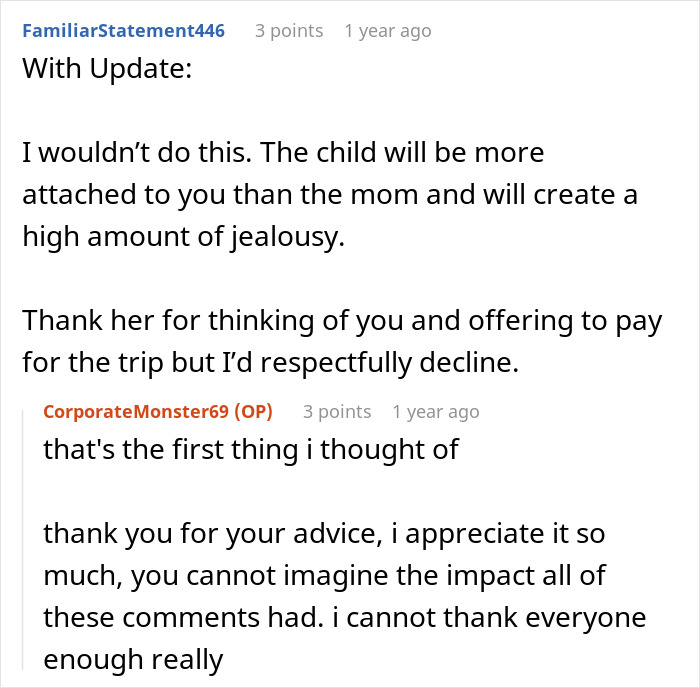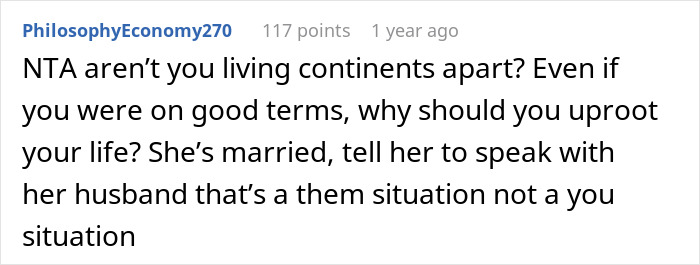I believe siblings are nature’s way of teaching us patience, sarcasm, and the fine art of side-eyeing. You grow up with them, fight over remote controls, steal each other’s clothes, and then one day, they become parents and suddenly you’re not a sibling anymore, but more of a free childcare option.
After a long period of estrangement, today’s Original Poster’s (OP) sister reappeared with a newborn in tow, and pitched a deal that sounded less like love and more like low-key exploitation.
More info: Reddit
Perhaps what makes familial exploitation painful is that relationships shift from supportive to transactional

Image credits: stockypics / Freepik (not the actual photo)
The sister, who had been estranged from the author after a personal conflict, reached out after giving birth



Image credits: CorporateMonster69

Image credits: benzoix / Freepik (not the actual photo)
She was asked by her sister to move from South America to Europe to provide full-time childcare for eight months



Image credits: CorporateMonster69

Image credits: cookie_studio / Freepik (not the actual photo)
The offer included food, travel, and just $400/month which was about $1/hour for 50-hour work weeks



Image credits: CorporateMonster69
Despite claiming financial hardship, the sister continued spending on luxuries, prompting her to question her motives
The OP and her sister hadn’t been on speaking terms after a falling out. The sister, now a new mom, suddenly reached out and offered her sibling a job of caring for her newborn full-time for eight months. In return, she’d cover travel costs, meals, and $400 a month.
Her sister claimed she couldn’t afford to pay more, but there were red flags waving aggressively. She and her husband were planning a ski holiday, renting a luxury apartment, and spending freely on online shopping. However, the OP noted that while her sister was playing the “we’re struggling” card, she and her husband actually both had stable careers.
She also noted that what really hurt wasn’t just the underwhelming pay, it was that her sister only reached out when she needed something with no attempt to genuinely reconnect or rebuild the relationship first. Even more troubling, when the offer wasn’t immediately accepted, her sister lashed out at their mother.

Image credits: freepik / Freepik (not the actual photo)
Medical News Today acknowledges that what is especially challenging about familial manipulation is how difficult they can be to recognize let alone confront. Manipulation within families is often disguised as care or obligation, making it harder for individuals to set boundaries or assert their needs.
In fact, familial manipulation can take on many forms, and Oprah Daily affirms this. Common tactics include trivializing someone’s emotions, emotional blackmail, gaslighting, and even contacting one for the sake of their own benefit.
Take Root Therapy, explaining how to navigate toxic family relationships, starts by highlighting the importance of setting healthy boundaries and approaching the situation with compassion and self-awareness. They also emphasize that it’s important to stay attuned to your own emotions and reactions, recognizing that you can’t fix or control the other person.
Furthermore, they highlight giving yourself permission to say no and taking space when needed are key steps in protecting your mental and emotional well-being.
Netizens sided with the OP, calling out the sister’s request as exploitative and unrealistic. They noted that the pay was shockingly low for the workload, raising concerns about legality, boundaries, and emotional manipulation. There was also strong skepticism about the sister’s financial claims, especially in light of her luxury spending.
In an update, the OP stated that she turned down her sister’s request. What would you have done in this situation? Would you have agreed out of family loyalty or set firm boundaries? We would love to know your thoughts!
In an update, she revealed that she turned down the offer, and netizens applauded her for doing that, as they highlighted that she was only being exploited
